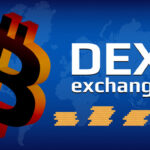You probably are not aware of decentralized finance or De-Fi. But Bitcoin is likely familiar. De-Fi and Bitcoin banking are not significantly different. The two are closely related and for the same reason. De-Fi and Bitcoin banking has gained momentum in the last several years. Many people and institutions are now part of the user base of De-Fi and Bitcoin banking.
Before defining De-Fi and Bitcoin banking, do you know that Bitcoin is a high-value asset in which you can invest? Through the Bitcoin Up platform, you can start trading in Bitcoin quickly and with support from the team. Go to bitcoincode and register today.
What is De-Fi?
In the simplest terms, decentralized finance or De–Fi is a new financial technology that utilizes secure distributed ledgers and eliminates the centralized control government, banks, and other financial institutions had over the financial system. De-Fi applies similar secure distributed ledgers to those that cryptocurrencies use, such as the blockchain technology that supports Bitcoin.
The purpose of De-Fi is to support peer-to-peer financial networks that get rid of intermediaries like banks. With De0Fi, users can transact directly without going through a bank or broker. And this means that users don’t pay the fees intermediaries would charge in the centralized financial system.
What is Bitcoin Banking?
Bitcoin banking is also an emerging concept in finance. Instead of using the conventional financial system like banks to get banking services like savings, loans, and other financial products, Bitcoin banking enables users to use Bitcoin. Bitcoin is a digital currency and asset. But through its blockchain technology, users can get different banking services.
With Bitcoin banking, you first register by opening your Bitcoin wallet. And this is akin to the process of opening a typical bank account. However, anyone with an internet connection can have a Bitcoin wallet with Bitcoin banking. Your Bitcoin wallet will be like your ordinary bank account where you can keep your Bitcoin, receive and even send Bitcoin.
Standard Features in De-Fi and Bitcoin Banking
There are some fundamental similarities between De-Fi and Bitcoin banking. To some extent, Bitcoin banking is part of De-Fi because of these standard features. Among the apparent commonalities is decentralization. De-Fi and Bitcoin banking are decentralized systems with no central government control or authority. They both eliminate intermediaries.
Blockchain, the underlying technology that underpins Bitcoin banking and decentralized finance, is another common feature. It’s a secure distributed ledger with advanced security features. For example, miners on the network verify all transactions on De-Fi systems or the Bitcoin network.
The Future of De-Fi and Bitcoin Banking
At the moment, De-Fi is still in the developing stages. It is not something that is already in use. De-Fi intends to use cryptocurrencies, but it is still unclear which cryptocurrencies it will use. Perhaps, it will include Bitcoin. De-Fi still has some regulatory and infrastructural issues that stakeholders should address first.
Bitcoin banking is also in its early stages. However, unlike De-Fi, it is already in use. Many individual and institutional users have Bitcoin wallets that they are already using to access financial services, including Bitcoin loans and sending or receiving Bitcoin.
Final Thoughts
De-Fi and Bitcoin banking will challenge the conventional centralized financial system. With their decentralized peer-to-peer networks, these emerging technologies will ensure that more people and institutions can access financial services. They will also get rid of intermediaries making transactions faster and cheaper. Moreover, they will enhance freedom in how people spend their funds.




Leave a comment
Have something to say about this article? Add your comment and start the discussion.